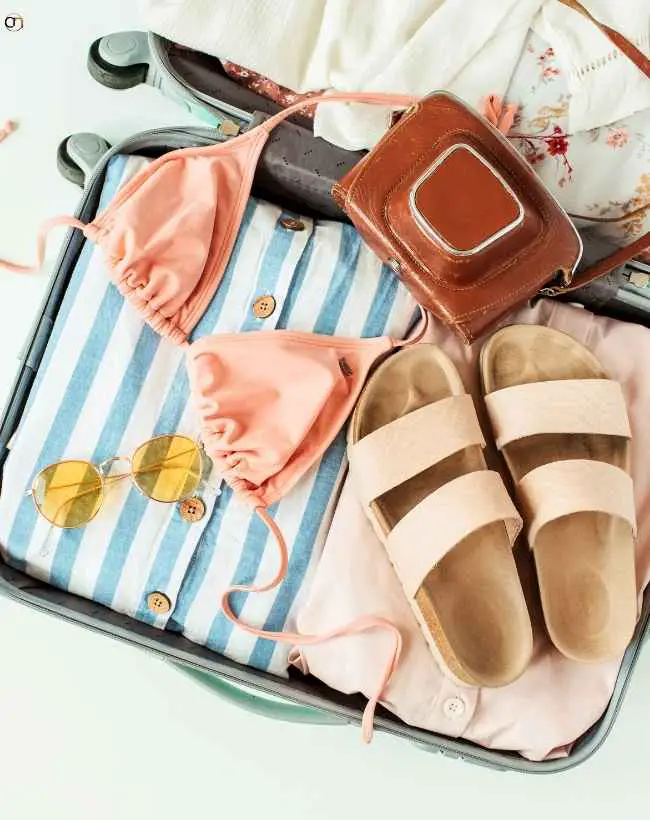Check Out Outdoor Travel Needs

Planning an adventure under the open sky?
If you’re hiking through mountains, lounging by the beach, or exploring hidden trails, having the right Outdoor Travel Needs ensures your trip is safe, comfortable, and unforgettable.
Let’s dive into the must-haves that make outdoor travel effortless and enjoyable!
Checkout outdoor travel needs:
Spending time outdoors is one of the best ways to refresh your mind and body—but proper preparation is key to enjoying it fully. Whether you’re planning a weekend camping trip, a hiking expedition, or a scenic road trip, packing the right gear ensures safety, comfort, and peace of mind.
1. Clothing Essentials
-
Layered Apparel: Weather can change quickly, especially in mountainous or coastal areas. Pack moisture-wicking base layers, warm insulating layers, and waterproof outerwear.
-
Footwear: Comfortable, weather-appropriate shoes like hiking boots, trail runners, or water shoes depending on your destination.
-
Accessories: Hats, sunglasses, and gloves for sun and temperature control.
2. Navigation Tools
-
GPS or Compass: Don’t rely on phone service alone. Bring a handheld GPS or a classic compass with a map of your area.
-
Mobile Charger or Power Bank: For phones, cameras, or GPS devices.
3. Safety Gear
-
First Aid Kit: A compact kit with bandages, antiseptic wipes, tweezers, and any personal medications.
-
Emergency Whistle: For attracting attention if you get lost or need help.
-
Multi-tool or Swiss Army Knife: Useful for countless tasks, from food prep to repairs.
4. Hydration and Nutrition
-
Water Bottles or Hydration Packs: Staying hydrated is critical—bring more water than you think you’ll need.
-
Water Purification: Tablets or filters in case you need to use natural water sources.
-
High-Energy Snacks: Trail mix, energy bars, and dried fruits are ideal for long-lasting fuel.
5. Shelter and Sleep
-
Tent or Hammock: Lightweight, weather-appropriate options for sleeping outdoors.
-
Sleeping Bag & Pad: Choose based on the season and terrain to ensure a good night’s rest.
-
Bug Protection: Insect repellent and mosquito nets, especially in wooded or tropical areas.
6. Lighting
-
Headlamp or Flashlight: Essential for navigating in the dark.
-
Extra Batteries: Always pack a few spares.
7. Toiletries and Clean-Up
-
Biodegradable Soap: Eco-friendly for outdoor use.
-
Toilet Paper & Trowel: If facilities aren’t available.
-
Trash Bags: Pack it in, pack it out—respect the environment.
8. Entertainment & Extras
-
Books, Journals, or Games: Lightweight fun for relaxing around the campfire.
-
Camera: To capture memories of your journey.
-
Travel Blanket or Mat: Adds comfort during breaks or picnics.
Final Tip: Every outdoor trip is unique. Customize your packing list based on location, duration, weather, and activity. Preparation ensures that your outdoor adventure is enjoyable, safe, and memorable.
Eco-Friendly Tips:
Protecting the environment starts with small, mindful choices. Whether you’re at home or exploring the outdoors, adopting eco-friendly habits helps reduce your impact and preserve nature for future generations. Here are some practical tips to get started:
1. Pack Reusables
-
Bring a reusable water bottle, travel mug, and utensils to cut down on single-use plastics.
-
Use cloth bags instead of plastic for shopping or packing.
2. Choose Sustainable Products
-
Opt for biodegradable soaps, shampoos, and detergents, especially when camping or traveling.
-
Use reef-safe sunscreen to protect marine life.
3. Reduce Waste
-
Avoid overpacking to reduce fuel usage and unnecessary waste.
-
Pack out all trash, and recycle whenever possible—even in remote areas.
4. Support Local & Eco-Conscious Brands
-
Choose locally made products and food to reduce transportation emissions and support the local economy.
-
Stay at eco-certified accommodations and use tour companies that follow sustainable practices.
5. Conserve Energy and Water
-
Turn off lights, electronics, and water taps when not in use, even when traveling.
-
Take shorter showers and avoid unnecessary laundry to save water.
6. Respect Wildlife and Nature
-
Observe animals from a distance and never feed them.
-
Stick to marked trails to preserve natural habitats and avoid erosion.
7. Offset Your Carbon Footprint
-
Consider using carbon offset programs when flying or driving long distances.
-
Carpool or use public transportation when possible.
Final Tips: Going green isn’t about being perfect—it’s about being better. Small, intentional choices add up over time. Embrace eco-friendly habits to protect the places you love and inspire others to do the same.
Key Take Away:
Being prepared is essential for safe and enjoyable outdoor travel. From proper clothing and gear to hydration, safety tools, and navigation, every item you pack should serve a purpose.
Prioritize comfort, protection, and sustainability to make the most of your adventures—whether it’s a hike, a camping trip, or a road getaway.
Click Next: Safe Travels Wishing You My friends
FAQs: Outdoor Travel Needs
1. What are the top essentials for outdoor travel?
Clothing layers, water, navigation tools, a first-aid kit, and shelter (like a tent or sleeping bag) are must-haves for any outdoor trip.
2. How do I pack light but stay prepared?
Choose multipurpose gear, pack layers, and bring travel-size essentials. Stick to items you’ll actually use.
3. Is it safe to drink water from natural sources?
Not without purification. Always use a water filter, purifier, or purification tablets to avoid illness.
4. What’s the best type of clothing for hiking or camping?
Opt for moisture-wicking, quick-dry, and breathable fabrics. Avoid cotton, which retains moisture.
5. Do I need a first-aid kit for short hikes?
Yes, even for short outings. Accidents can happen anytime, so it’s smart to carry a compact kit.
6. How can I make my outdoor travel more eco-friendly?
Use reusable containers, pack out your trash, stick to marked trails, and choose biodegradable products.






